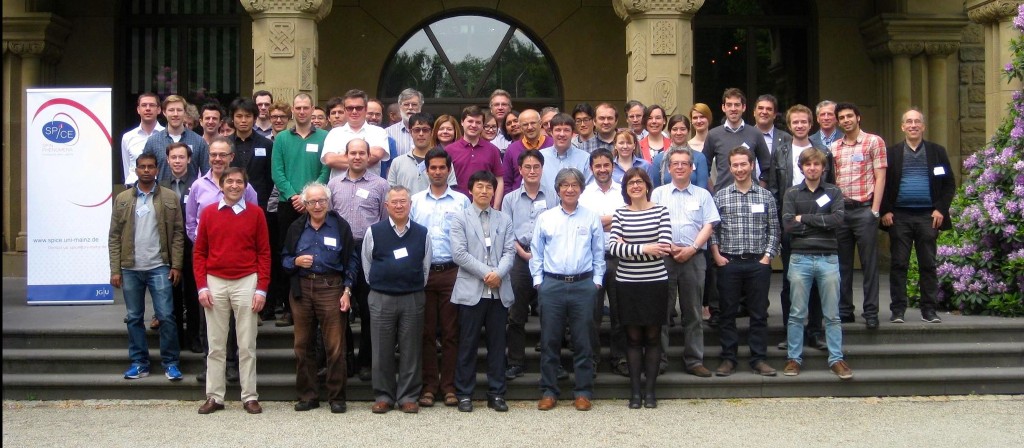SPICE-Workshop on Computational Quantum Magnetism May 2015
May 22nd - 25th 2015
In the last decade substantial progress has been made in computational magnetism. The leading ab initio codes have acquired capability to handle noncollinear spin systems, including spin spirals, which allows for comprehensive studies of most important magnetic systems, such as rare earth and 5d-based materials, dilute magnetic semiconductors, spin-polarized surface and interfaces etc. Advances beyond the density functional theory, such as the dynamic mean field theory (DMFT) or ab initio Gutzwiller methods allows proper handling of strongly correlated systems.
At the same time development of model approaches such as functional renormalization group, direct diagonalization or Monte Carlo simulations have also been developed considerably and their capability has expanded far beyond the level of a decade or two ago.
This workshop brought together model and computation theorists, as well as some experimentalists, to summarize the progress that has been made in the last 10-15 years, formulate outstanding problems and promote cooperation between different directions.
Scientific Organizers
Roser Valenti (Frankfurt), Alexander Lichtenstein (Hamburg), and Igor Mazin (Washington)
SPICE co-organizers
Jairo Sinova
Invited Speakers (all confirmed)
| W. Antropov (Ames) K. Belashchenko (Nebraska) S. Biermann (Palaiseau) A. Chubukov (Minnesota) M. Coey (Dublin) R. Coldea (Oxford) O. Eriksson (Uppsala) C. Felser (Dresden) A. Georges (Paris) M. Gingras (Waterloo) |
E. K. U. Gross (Halle) G. Jackeli (Stuttgart) T. Jungwirth (Prague) M. Katsnelson (Nijmegen) G. Khaliullin (Stuttgart) D. Khomskii (Cologne) C. Lacroix (Grenoble) F. Mila (Lausanne) Y. Mokrousov (Jülich) Y. Motome (Tokyo) |
L. Nordstrom (Uppsala) N. Perkins (Minnesota) W. Pickett (Davis) M. van Schilfgaarde (London) S. Sharma (Halle) I. Solovyev (Tsukuba) S. Streltsov (Ekaterinburg) R. Thomale (Würzburg) M. Whangbo (N. Carolina) A. Yaresko (Stuttgart) |

